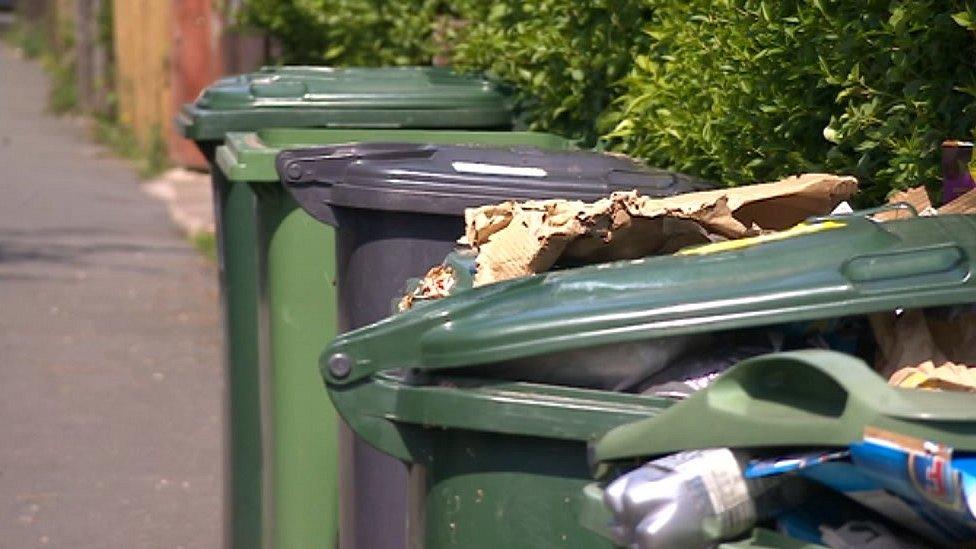Contaminated recycling could cost County Durham taxpayers 'millions'
- Published
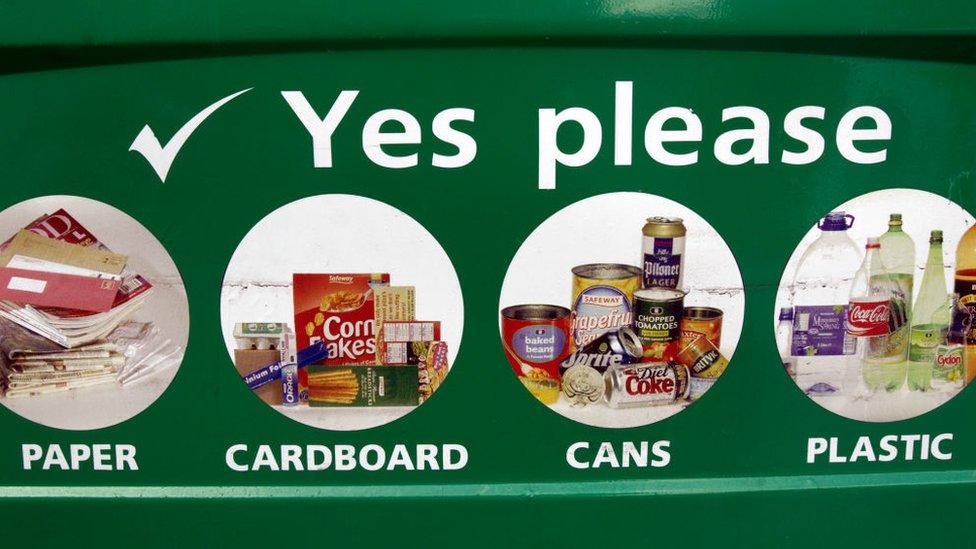
Councillors called for the recycling system to be simplified
Contaminated recycling could be costing millions of pounds of taxpayers' money in fines from waste companies, a council has heard.
The issue of wrong items - or unwashed ones or items carrying food - being put in recycling bins was raised at a Durham County Council meeting.
A council report found 35.8% of its domestic recycling was contaminated.
Corporate scrutiny manager Tom Gorman said an increase in contamination meant the overall recycling rate was down.
In all, 7,795 notices were issued for contaminated bins in the last year.
"Now just over a third of our recyclings are contaminated," Mr Gorman said.
"That does result in recyclables being rejected so it does drive down our recycling rate.
"And it also results in financial penalties imposed on us by the contractor who's responsible for that recycling because they obviously can't make as much money."
'Out of ignorance'
Councillor Dan Nicholls told the environment scrutiny committee the revelation that a third of all the county's recycling is contaminated was "terrible".
"That's costing the council millions and millions of pounds of taxpayers' money," he said.
Mr Nicholls questioned what the council was doing about the problem and sought to clarify the "extortionate figure" being wasted in paying the fines. "Surely that's important for deciding how much money we should be spending in counteracting that," he said.
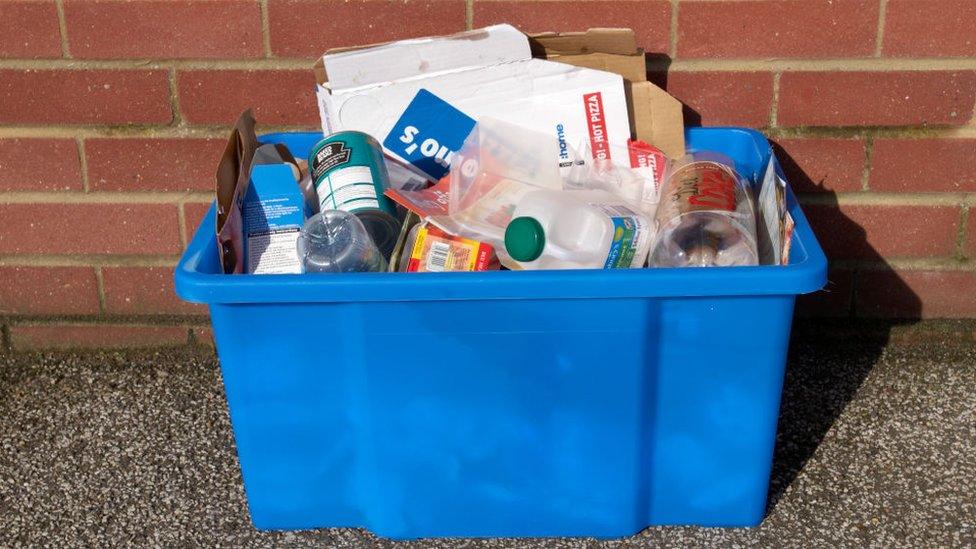
The UK government plans to introduce a standardised recycling approach across the country
Mr Gorman said some people put things in their recycling bin which aren't recyclable "out of ignorance".
The council took an "education approach" to resolving those situations through information campaigns, external on what you can and can't recycle.
But it also took enforcement action when people continually put contaminated items - "wet waste if you like, so food waste and nappies and all sorts of things" - into the recycling bin.
"It contaminates that bin; then if there's one or two bins in that load then that load tends to be rejected," he explained.
"So that's the reason for the large percentage of contaminated waste. Once a little bit of contamination's got into the load, the company will reject the whole load.
"Our binmen do check, they do lift the lid and they'll have a quick glance. If the contaminants are at the top they can reject emptying that bin, but if they're at the bottom obviously they'll miss them."
A council in Lincolnshire angered residents last October when more than 9,000 bins deemed "contaminated" went uncollected.
'Not cutting through'
Statistics in the council's report showed the rate of recycling was down to 38.1% in July 2020 to June 2021, compared with 39.4% the previous year, according to the Local Democracy Reporting Service.
In the same period, 11% more waste - 27,579 tonnes - was collected and less of it was being diverted from landfill, 90% compared to almost 97% previously.
Councillor Jonathan Elmer said he was concerned habits had slipped during the coronavirus pandemic, and that steps should be taken immediately to try to "re-instigate those positive habits".
"My own sense is it doesn't seem to be cutting through," he said. "I'm not personally receiving that much information in relation to how I should be recycling and what goes in what bin and why that's important."
BBC analysis in 2018 showed there were 39 different sets of rules in England for what can be put in plastic recycling collections.
Mr Gorman said the UK government was to introduce a standardised recycling approach, external across the country, and suggested campaigns to reduce contamination could be better targeted via "apps and social media".

Follow BBC North East & Cumbria on Twitter, external, Facebook, external and Instagram, external. Send your story ideas to northeastandcumbria@bbc.co.uk, external.
Related topics
- Published15 October 2021

- Published11 October 2021
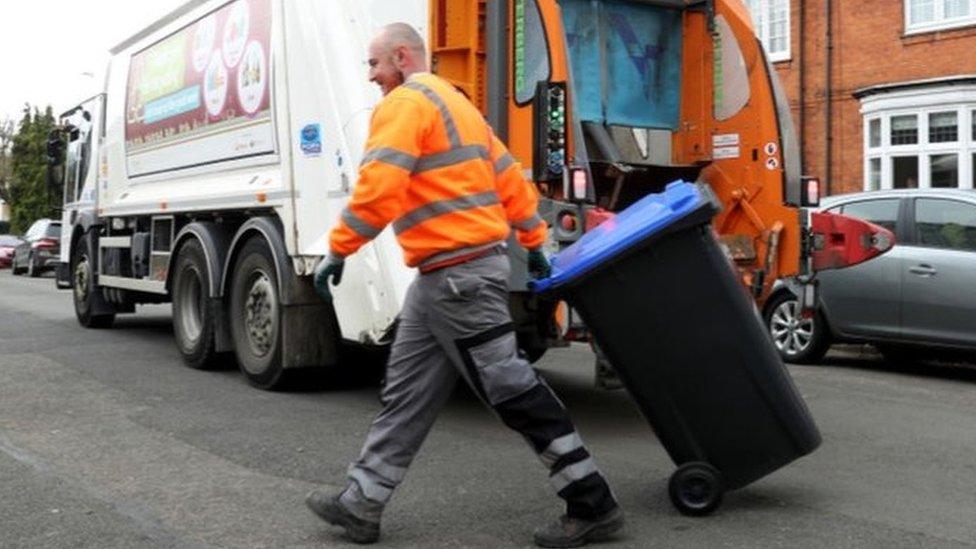
- Published22 September 2021
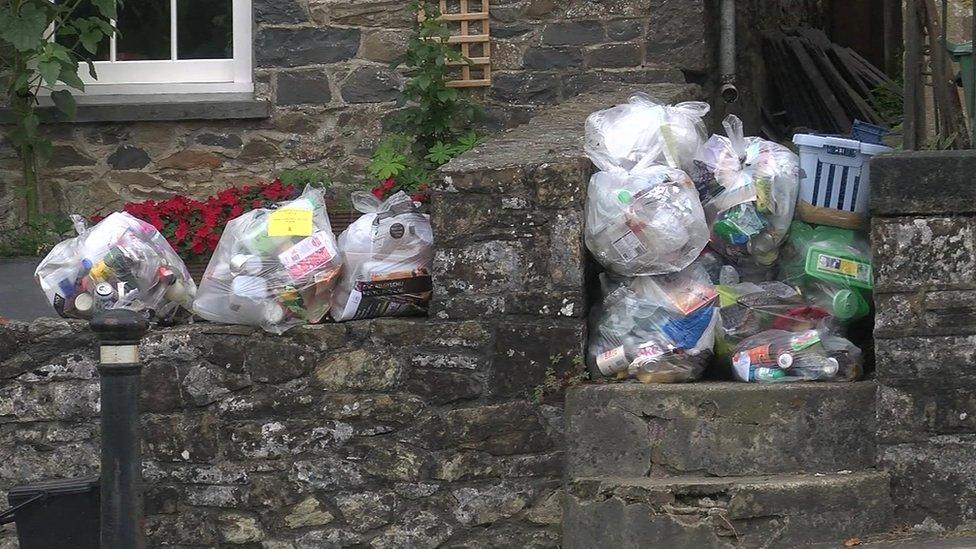
- Published16 May 2019
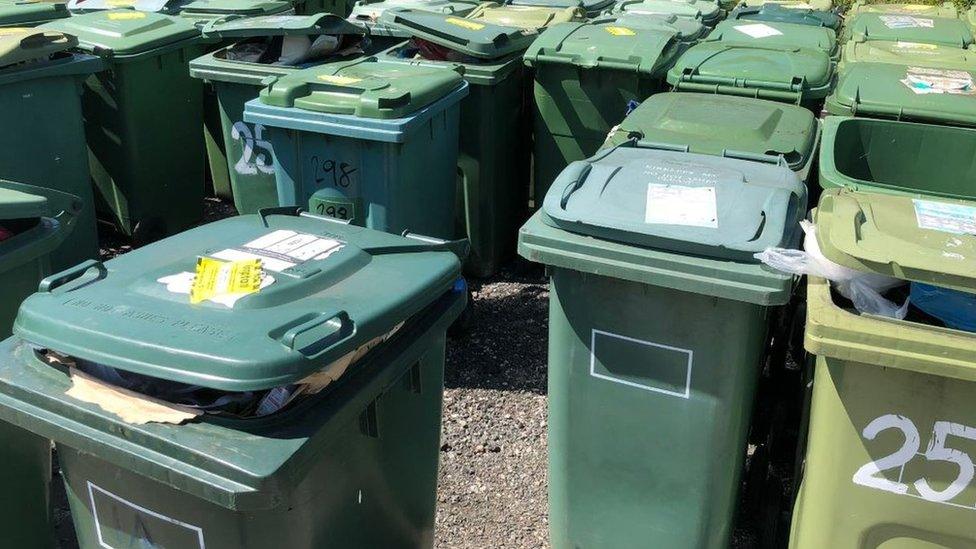
- Published15 May 2019
